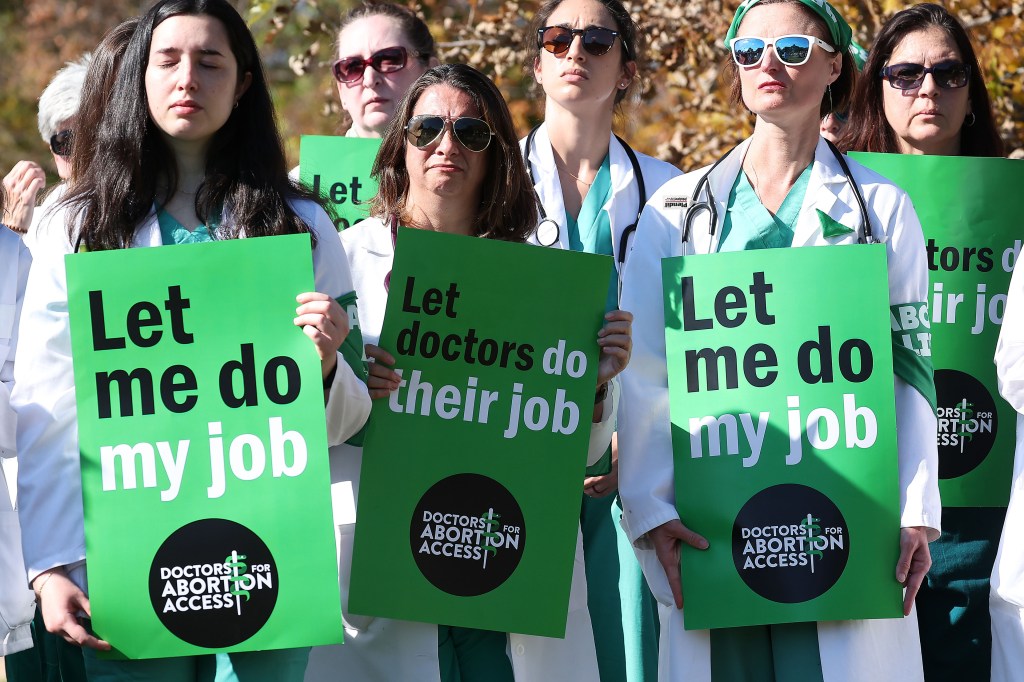It’s been two years since the U.S. Supreme Court overturned the constitutional right to an abortion, triggering a parade of restrictions and bans in conservative-led states. But the impact of those restrictions has bled into the world of medical education, forcing some new doctors to factor state abortion laws into their decisions about where to begin their careers.
According to the Association of American Medical Colleges, for the second year in a row, students graduating from U.S. medical schools were less likely to apply for residency positions this year in states with abortion bans and other significant abortion restrictions.
In this episode of “The Indicator From Planet Money,” KFF Health News’ chief Washington correspondent, Julie Rovner, reports on how the medical labor force is changing post-Roe v. Wade and why graduating medical students, from OB-GYNs to pediatricians, are avoiding training in states with abortion bans.
This article was produced by KFF Health News, a national newsroom that produces in-depth journalism about health issues and is one of the core operating programs at KFF — the independent source for health policy research, polling, and journalism.
